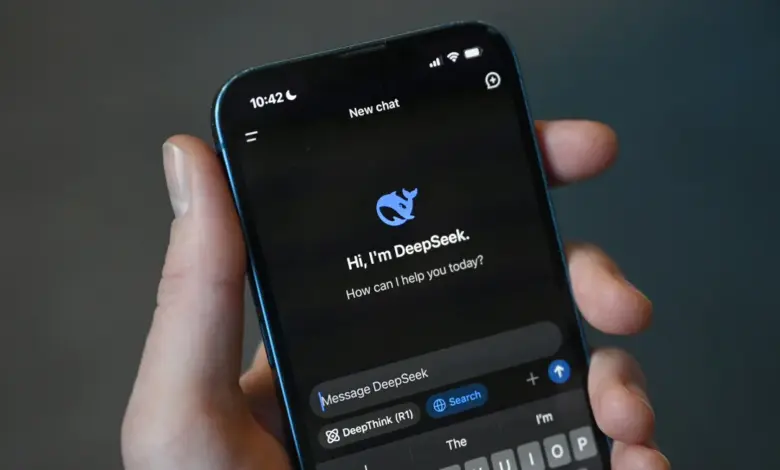
DeepSeek’s advances have roiled global stock markets and AI players. Now, its influence is spreading quickly at home, with some of China’s biggest tech companies, many of which had been developing their own chatbots, racing to incorporate the open-source model into their own services.
In early February telecoms giant Huawei said it would run DeepSeek on its own computing hardware composed of its Ascend computer processors, which are domestically produced.
Some AI watchers have hailed this as a turning point, as it demonstrates that a high-performing model like DeepSeek no longer requires Nvidia’s most powerful chips to operate.
“This partnership defies US sanctions by proving China can deliver globally competitive AI performance using domestically developed AI hardware and software stack, replacing Nvidia chips with Ascend chips,” analysts at Bernstein, an investment and research firm, wrote in a research note earlier this month.
Starting in late 2022, the Biden Administration imposed several rounds of export controls on China in an effort to deprive the country of technology that Washington fears Beijing could use to make the next generation of weapons and AI systems.
But the success of DeepSeek’s latest R1 AI model, which is said to be trained at a fraction of the cost of established players like ChatGPT, challenged the assumption that cutting off access to advanced chips could successfully stymie China’s progress.
Such is DeepSeek’s fame that leading Chinese AI chipmakers — including Moore Threads, Tencent-backed Enflame, Baidu’s Kunlunxin and Hygon Information Technology — have also announced support for the firm, running the AI model on their own computing chips.
Beyond chips
Beyond chipmakers, the cloud arms of major Chinese technology companies have also rushed to incorporate DeepSeek’s technology into their offerings.
Alibaba, Tencent, Baidu, and TikTok parent Bytedance announced they had made Deepseek’s service available through their cloud platforms. The country’s three major telecom operators, along with electronics maker Lenovo and auto brand Geely, have also adopted DeepSeek into their cloud platforms and products.
“It serves as recognition for open-source large-model companies. If your model is good enough, AI giants will integrate it into their platforms,” said Lian Jye Su, chief analyst at Omdia, a technology research firm.
These major Chinese tech firms, which have dominated the country’s internet scene for more than a decade, began rolling out their own large language models over the past two years since the debut of ChatGPT in late 2022.
Despite having competing products they have welcomed DeepSeek. Su said the primary reason for their adoption is to attract more people and businesses to use their platforms.
“In reality, making money directly from large models is difficult for AI giants — unless there are mature consumer and enterprise applications to support them,” he said.
Their moves reflect a wider trend. American Big Tech — including Nvidia, Microsoft and Amazon — have similarly embraced DeepSeek.
Topping the charts
Deepseek, the Hangzhou-based startup founded in 2023, sent shock waves around the world last month when it launched its newest AI model.
Its AI Assistant app quickly topped global download charts, surpassing ChatGPT in late January. Within 20 days of launch, its daily active users have exceeded 22 million, according to state media.
Its success has catapulted its founder, Liang Wenfeng, into the ranks of national heroes. Despite the optimism, analysts caution that bottlenecks in China’s AI chip development remain due to US export restrictions.
“Porting DeepSeek models to different chip architectures is a lot of low-level software work, and the fact they could do so quickly is amazing, but it doesn’t solve the chip shortage problem,” said Linghao Bao, senior analyst at Trivium China, a research and advisory firm.
The ramp-up of advanced chip production continues to be hampered by the absence of advanced chipmaking equipment, which the US has banned from being exported to China, he said.
And outside China, DeepSeek’s rapid rise has drawn scrutiny from various governments. Last week, Taiwan and Australia banned their government officials from using the Chinese AI service over data security risks.
Some South Korean ministries and government departments have also issued bans. Last month, Italy imposed a blanket block on DeepSeek’s app after the company failed to address privacy concerns raised by the authorities. More countries have since raised concerns over the firm’s data practices.




